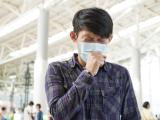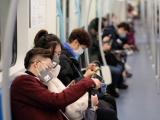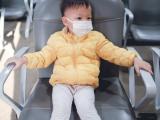Apr 2, 2004 (CIDRAP News) – China, including Hong Kong, and Singapore have begun to drop some of their procedures and safeguards related to SARS (severe acute respiratory syndrome) after going 2 months or longer with no confirmed cases.
Since the end of the global SARS outbreaks in July 2003, only six cases have been confirmed. They included a case in a laboratory worker in Singapore last September, another lab-related case in Taiwan in December, and four sporadic cases in China's Guangdong Province in December and January.
China's Ministry of Health ended its daily SARS reports this week, according to an Agence France-Presse (AFP) report today. Hong Kong and Singapore both announced the cancellation of some SARS-related rules yesterday.
"The risk of SARS being imported into Singapore is currently extremely low in view of the few sporadic cases that have occurred without any local transmission," the Singapore Ministry of Health said.
Singapore officials said hospital patients are no longer limited to four visitors each, and visitors no longer have to list their recent contacts. Also, healthcare workers' temperatures will no longer be monitored, and outpatient clinics no longer need to triage and separate patients for fever. However, hospital emergency departments still have to triage for fever.
The Hong Kong Department of Health said it would end its SARS alert starting Apr 6. The alert began in December when there was a confirmed SARS case near Hong Kong, the statement said. It noted that Guangdong authorities had "stepped down their [SARS] contingency measures on March 19."
Starting Apr 6, Hong Kong physicians will no longer have to report community-acquired pneumonia patients with a history of travel to Guangdong, the department said. A "Yellow Alert" for hospitals will end the same day. Restrictions on visitor hours and numbers will continue for general infection control purposes, but the rules will be more flexible, the statement said.
Hong Kong officials said health screening measures at border stations, including health declarations and temperature checks, will continue.
Chinese health officials had been making daily SARS reports since Sep 19, according to the AFP report. SARS reporting now will be done as part of the health ministry's monthly reporting system, the story said.
The health ministry said the decision to end the daily reports "does not mean that SARS prevention work will be relaxed the least bit," according to AFP.
SARS first surfaced in Guangdong in November 2002 and spread to Hong Kong in February 2003. Chinese officials initially tried to cover up the extent of the outbreak on the Mainland. Through July of 2003, the disease struck 8,098 people and killed 774 worldwide, according to the World Health Organization.
See also:
Hong Kong Department of Health statement
http://www.info.gov.hk/gia/general/200404/01/0401247.htm




















